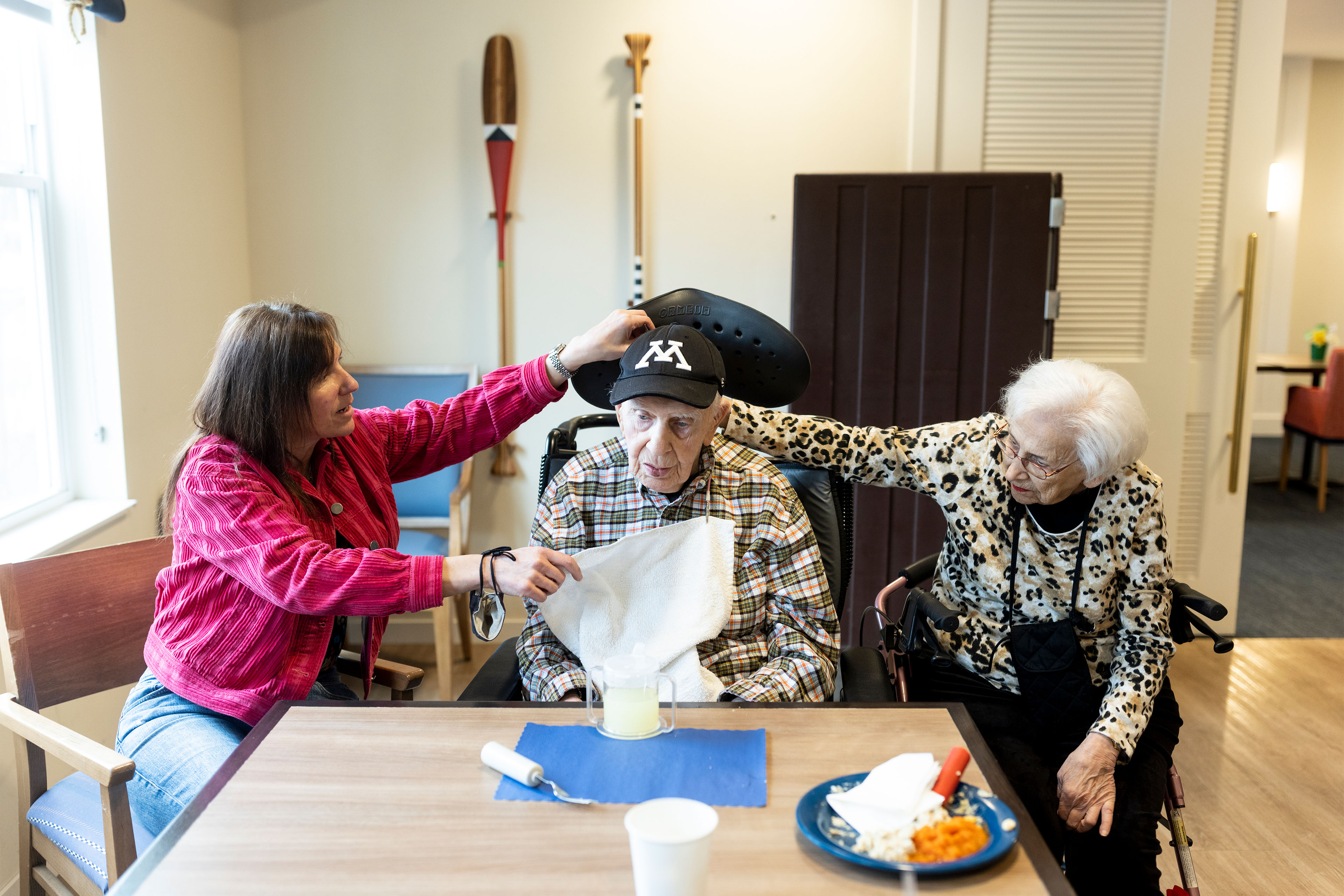The Duty of Assisted Residing In Giving Specialized Treatment for Dementia Sufferers
The stipulation of specialized look after dementia individuals within assisted living facilities is progressively identified as a vital component of efficient mental deterioration monitoring. These environments are created to resolve the one-of-a-kind cognitive and emotional challenges dealt with by individuals with dementia, offering tailored support that promotes security and wellness. By incorporating organized regimens and engaging activities, assisted living can mitigate sensations of isolation while enhancing general lifestyle. However, the effectiveness of these programs typically pivots on different aspects, including personnel training and family members participation, motivating a more detailed exam of just how these aspects engage to enhance treatment results.
Recognizing Dementia Treatment Requirements
Recognizing the care requirements of individuals with mental deterioration is essential for providing efficient assistance and improving their lifestyle. Mental deterioration is a modern neurological condition that impacts cognitive functions such as memory, reasoning, and interaction. People with dementia commonly call for support with day-to-day activities, customized treatment strategies, and emotional support.
Effective dementia treatment entails recognizing the special challenges faced by each person. This consists of comprehending the phases of mental deterioration, which can vary from mild cognitive disability to sophisticated phases requiring thorough aid. Care needs may include assistance in taking care of day-to-day routines, medication adherence, and preserving social interactions to stop seclusion.
Additionally, sensory stimulation and acquainted settings can substantially boost the health of people with mental deterioration. Caregivers must be educated to identify behavioral changes and employ techniques tailored to each person's choices and past experiences. Techniques such as validation treatment and memory can aid connect effectively and promote a feeling of protection.
Inevitably, efficiently resolving the treatment requirements of individuals with dementia needs a caring method, ongoing training for caregivers, and a dedication to keeping self-respect and regard throughout the caregiving process.
Benefits of Assisted Living

An additional considerable advantage is the risk-free and safe and secure atmosphere these centers provide. Locals gain from features such as safeguarded entrances and kept an eye on usual areas, lowering the risk of roaming and boosting overall safety and security. Moreover, assisted living promotes social interaction among citizens, cultivating a sense of neighborhood and belonging. Engaging with peers can relieve sensations of seclusion, which prevail in those living with dementia.
Additionally, many assisted living facilities provide help with everyday tasks, such as medicine administration, showering, and dish prep work. This assistance enables citizens to preserve their self-reliance while ensuring their health and wellness and wellness are click here to read prioritized. Eventually, assisted living works as a beneficial source, stabilizing care and autonomy for individuals with mental deterioration and their families.

Specialized Programs and Tasks
Furthermore, art and music treatment play considerable duties in promoting creativity and psychological expression (Memory Care). Involving residents in paint, crafting, or music sessions can give restorative benefits, assisting to reduce anxiety and boost mood. Exercises, such as gentle exercises and dance sessions, are additionally vital, as they promote flexibility and physical health while urging social interaction amongst citizens
Organized everyday regimens are frequently developed to provide a sense of security and predictability for individuals with dementia. These regimens can include arranged dish times, group activities, and individualized treatment plans that deal with individual rate of interests and capacities. By creating an enhancing setting full of tailored activities, helped living centers not just enhance the top quality of life for dementia clients yet also foster a feeling of area and belonging.
Trained Personnel and Assistance
In addition, qualified team are equipped to execute tailored care plans tailored per homeowner's choices and abilities. This personalized technique cultivates a sense of autonomy and dignity, enabling citizens to involve in purposeful activities that improve their lifestyle. The team additionally play a vital role in checking health and wellness, promptly identifying any kind of adjustments in problem that may require medical interest.
In enhancement to route treatment, trained staff offer emotional support to residents, helping to alleviate feelings of confusion and anxiety that frequently go along with dementia. Their compassionate approach creates a caring setting where locals feel valued and understood - Assisted Living. Ultimately, the competence and commitment of qualified staff are indispensable in delivering extensive treatment that satisfies the complicated needs of people coping with dementia in assisted living settings
Family Members Participation and Resources
Household participation plays a considerable role in the treatment of people with dementia in assisted living centers. Involving family participants in the care procedure not only enhances the psychological wellness of the resident yet also cultivates a collective environment where treatment plans can be tailored to specific requirements. Families can give important understandings into the choices, history, and actions of their loved ones, which can notify caregivers and lead to even more personalized treatment approaches.
Additionally, assisted living facilities often use resources for family members, such as support system and educational workshops. These resources can aid families comprehend mental deterioration, enhance interaction approaches, and establish coping devices. Involvement in these programs can equip relative, furnishing them with the devices necessary to support their liked ones successfully.
In addition, regular communication in between family members and staff is important. This recurring dialogue allows households to stay notified concerning their enjoyed one's progress and any type of modifications in treatment strategies. Ultimately, a strong partnership between family members and assisted living centers fosters an atmosphere of depend on and understanding, making certain that people with dementia receive the specialized care they deserve while preserving their family connections.
Final Thought
In verdict, helped living facilities play an important role in resolving the special needs of mental deterioration individuals with personalized treatment and support. Ultimately, assisted living offers important sources that substantially improve the top quality of life for those living with dementia.
Comments on “Find top-rated Assisted Living facilities with excellent care services.”